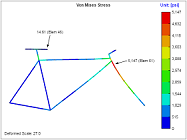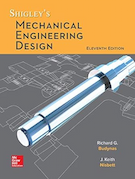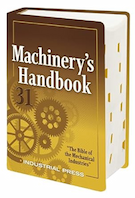Navigating the Best Continuing Education Courses and Programs
Continuing education is an important aspect of professional development for engineers. Keeping up with the latest advancements and developments in their field helps ensure that they maintain their professional competence and remain competitive in the job market. With the increasing demand for continuing education, the options available for engineers to pursue further learning have become more diverse. Engineers now have access to a wide range of courses, programs and workshops, both online and in-person, that can help them meet their continuing education requirements and advance their careers. In this article, we'll explore the different options for continuing education and provide tips on how to navigate the best courses and programs.

Online Courses
Online courses are one of the most popular options for continuing education for engineers. They offer flexibility, allowing engineers to study at their own pace, from anywhere, at any time. Online courses can be a great option for engineers who have busy schedules or who live in areas without access to in-person courses. Some online courses are self-paced, while others are instructor-led, with set schedules and deadlines. A wide range of online courses are available, from technical courses that focus on specific engineering disciplines, to more general courses on topics such as project management, leadership, and communication skills. We offer a set of online engineering courses that are ideal for engineers looking for technically focused courses to fulfill their PDH requirements or just to stay ahead in their field.
In-Person Workshops
In-person workshops are another popular option for continuing education. These are short, intensive courses that are delivered in-person, either at a physical location or as part of a conference. Workshops are an excellent opportunity for engineers to network with their peers, engage with instructors and subject matter experts, and receive hands-on training in their area of interest. Workshops can be a great way to learn about new technologies, techniques, and methodologies in a condensed period of time. In-person workshops can be found at industry conferences, professional associations, and training centers.
Certificate Programs
Certificate programs are another option for continuing education for engineers. These programs offer a more structured and comprehensive approach to learning, typically requiring participants to complete a set number of courses to receive a certificate of completion. Certificate programs can be found in a wide range of areas, from engineering specialties such as civil, mechanical, and electrical engineering, to more general areas such as project management, business administration, and leadership.
Finding the Best Fit
With so many options available for continuing education, it can be overwhelming for engineers to determine the best fit for their needs. To help you find the best fit, consider the following tips:
- Assess Your Needs: Start by assessing your professional goals and the areas in which you want to improve. Do you want to advance your career? Expand your knowledge in a particular area? Develop new skills? Understanding your needs will help you identify the type of courses and programs that will best meet your needs.
- Consider the Format: Consider whether you prefer an online course, in-person workshop, or certificate program. Some engineers prefer in-person classes, as they provide a structured learning environment and the opportunity to interact with instructors and other students. Others prefer online courses, which offer flexibility and the ability to learn at your own pace. Some online courses are self-paced, while others are live and interactive. Some in-person workshops may consist of multiple full-day sessions, while others may be shorter and more focused. Evaluate the format to determine if it aligns with your learning style and schedule.
- Look for Relevant Topics: Look for courses and programs that cover topics that are relevant to your area of expertise or interest. Ensure that the course content is up to date and meets the latest industry standards. The courses that we offer are primarily technically focused and so are ideal for engineers looking to advance their professional development along the technical career track.
- Review the Time Commitment: When reviewing the time commitment for a continuing education program, it's important to consider not just the length of the program itself, but also any additional time that may be required for preparation and studying. Some programs, such as online courses, may allow for more flexible scheduling, while others, such as in-person workshops, may require a larger time commitment in a short period of time. It's important to evaluate your schedule and make sure that you have the time and availability to fully engage in and complete the program. The courses that we offer are all short-form and are designed to be completed within a brief time frame.
PDH Classroom offers a suite of online continuing education courses tailored to engineers. These courses can be used to fulfill PDH credit requirements for maintaining your PE license, or just as a part of staying ahead in your field.
Continuing education is a crucial part of professional development for engineers. By taking the time to research and evaluate your options, you can find the program that best fits your needs and helps you achieve your professional goals. Whether you're looking to deepen your expertise, broaden your skillset, or advance your career, continuing education is a valuable investment that can pay off in the long run.




